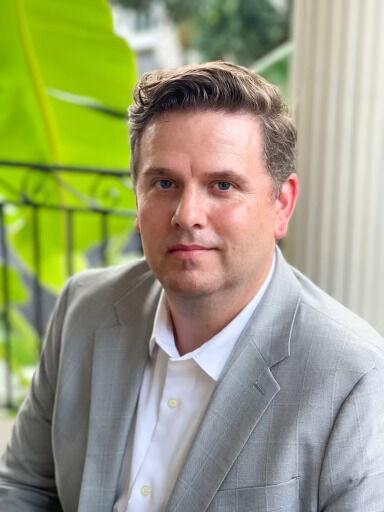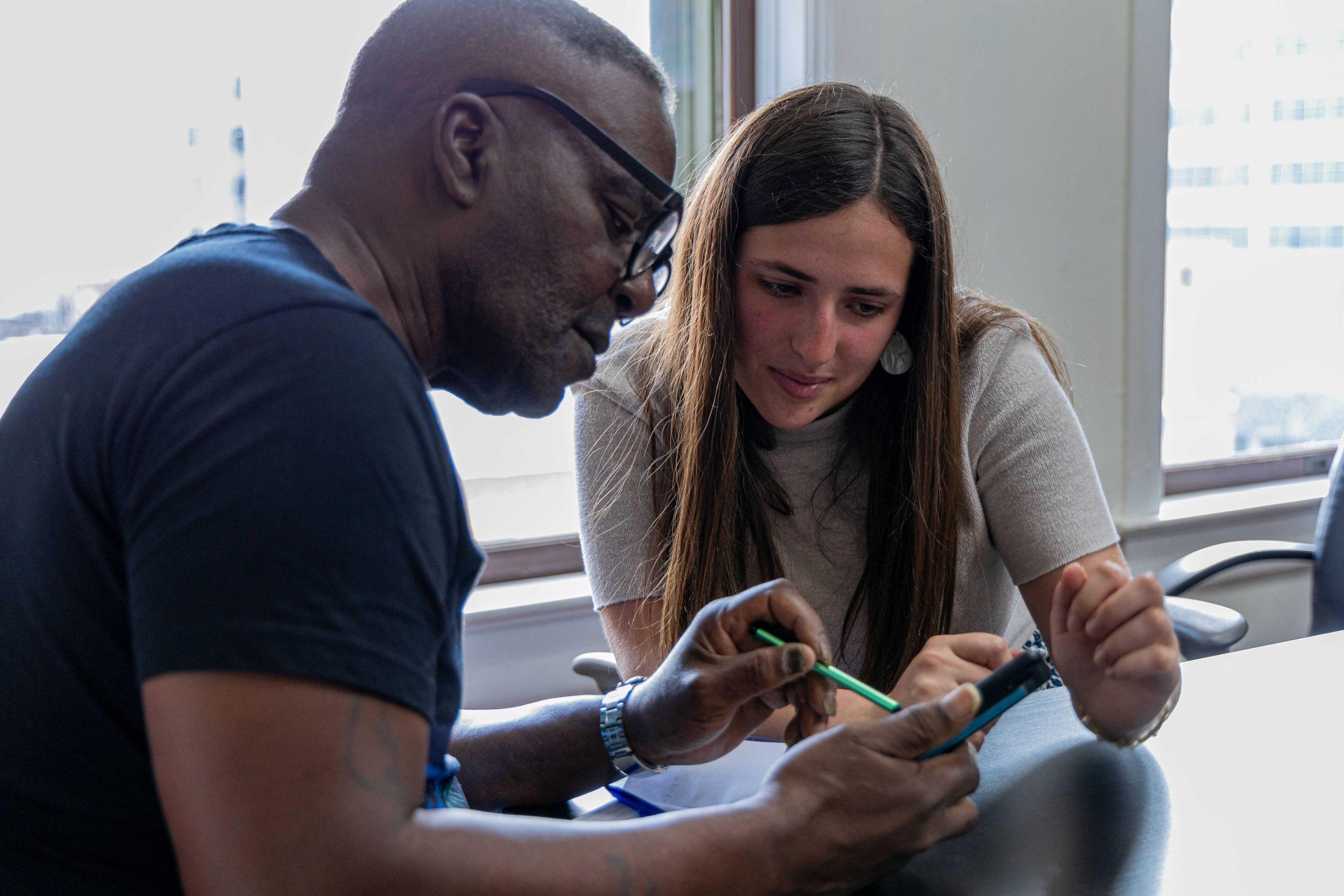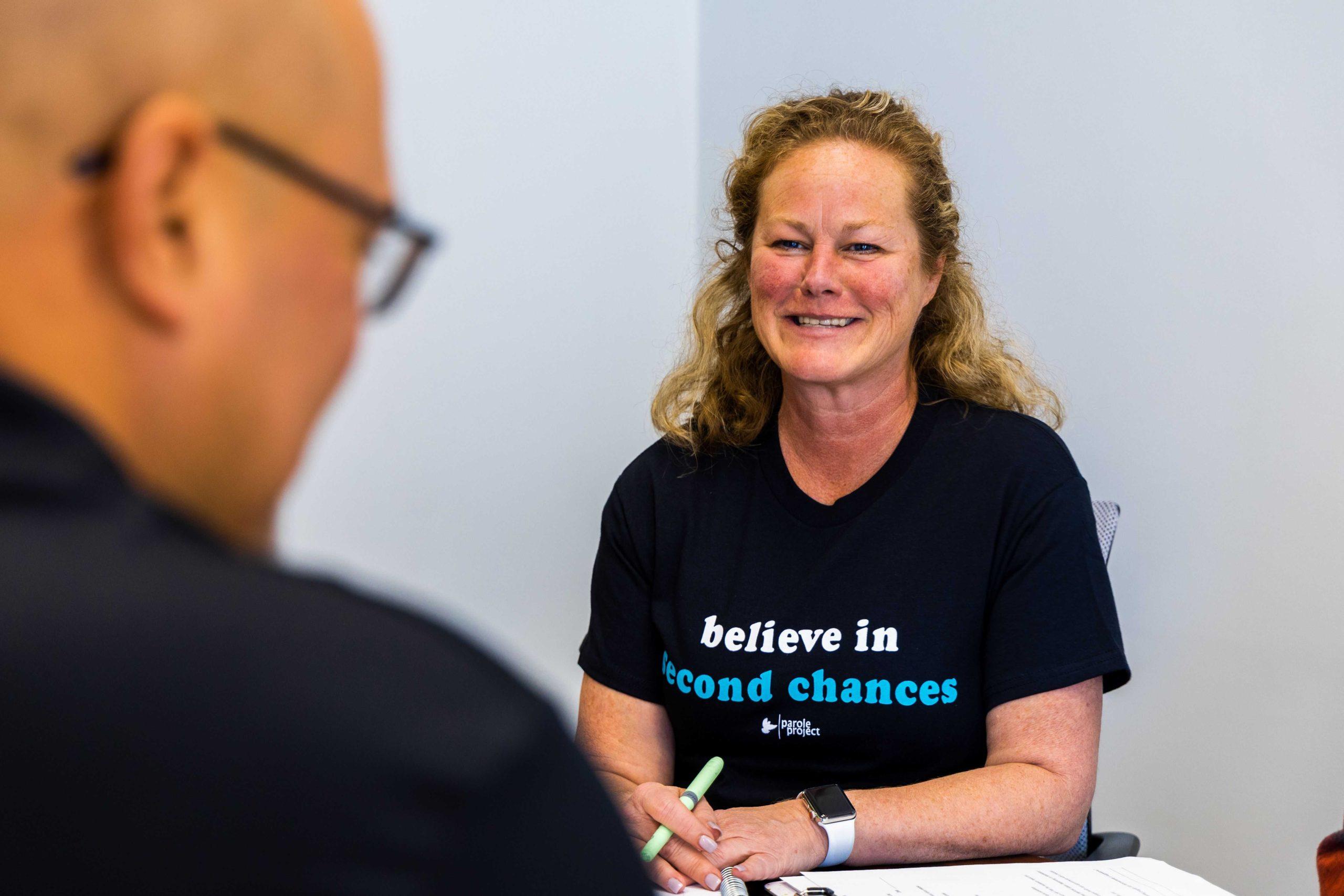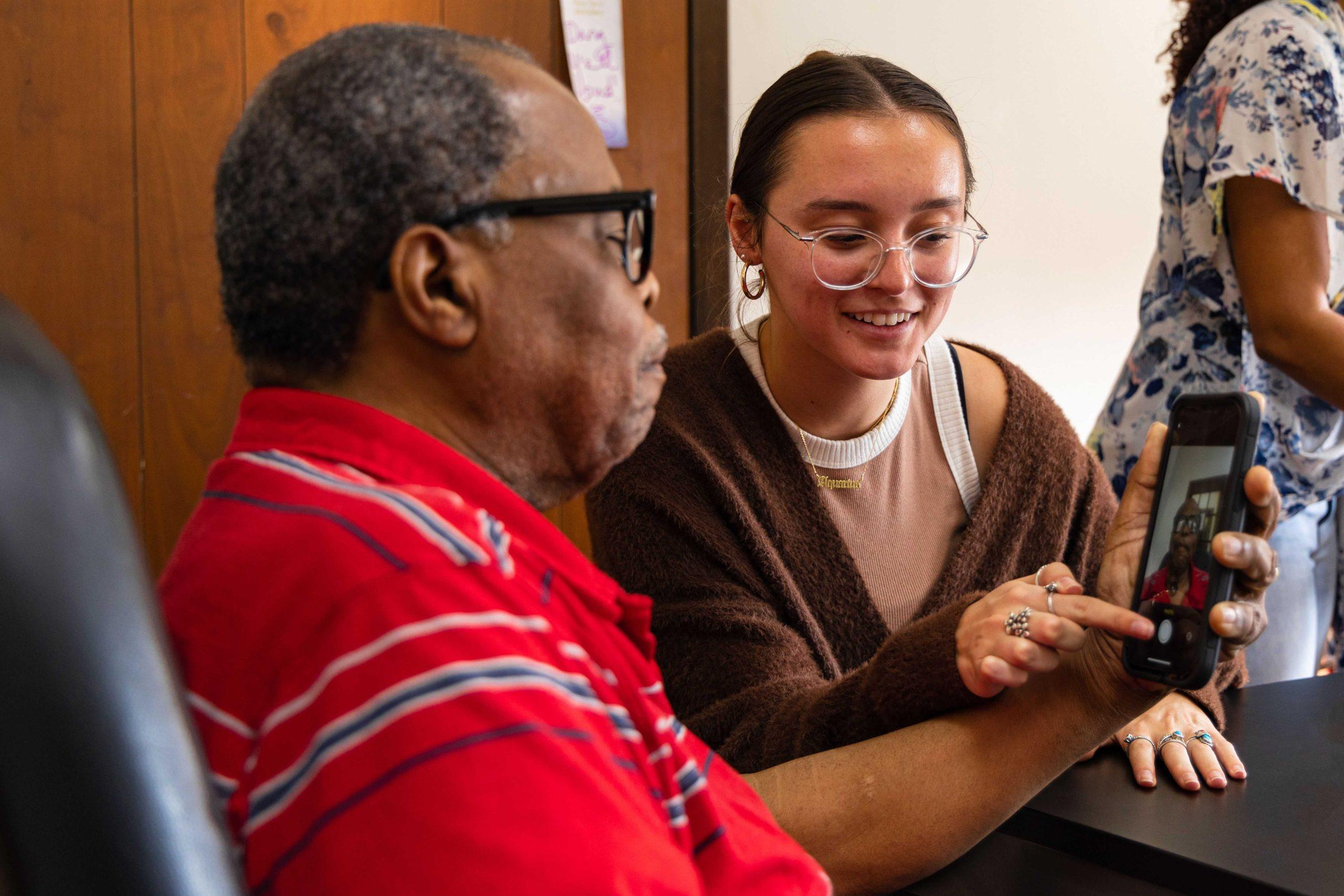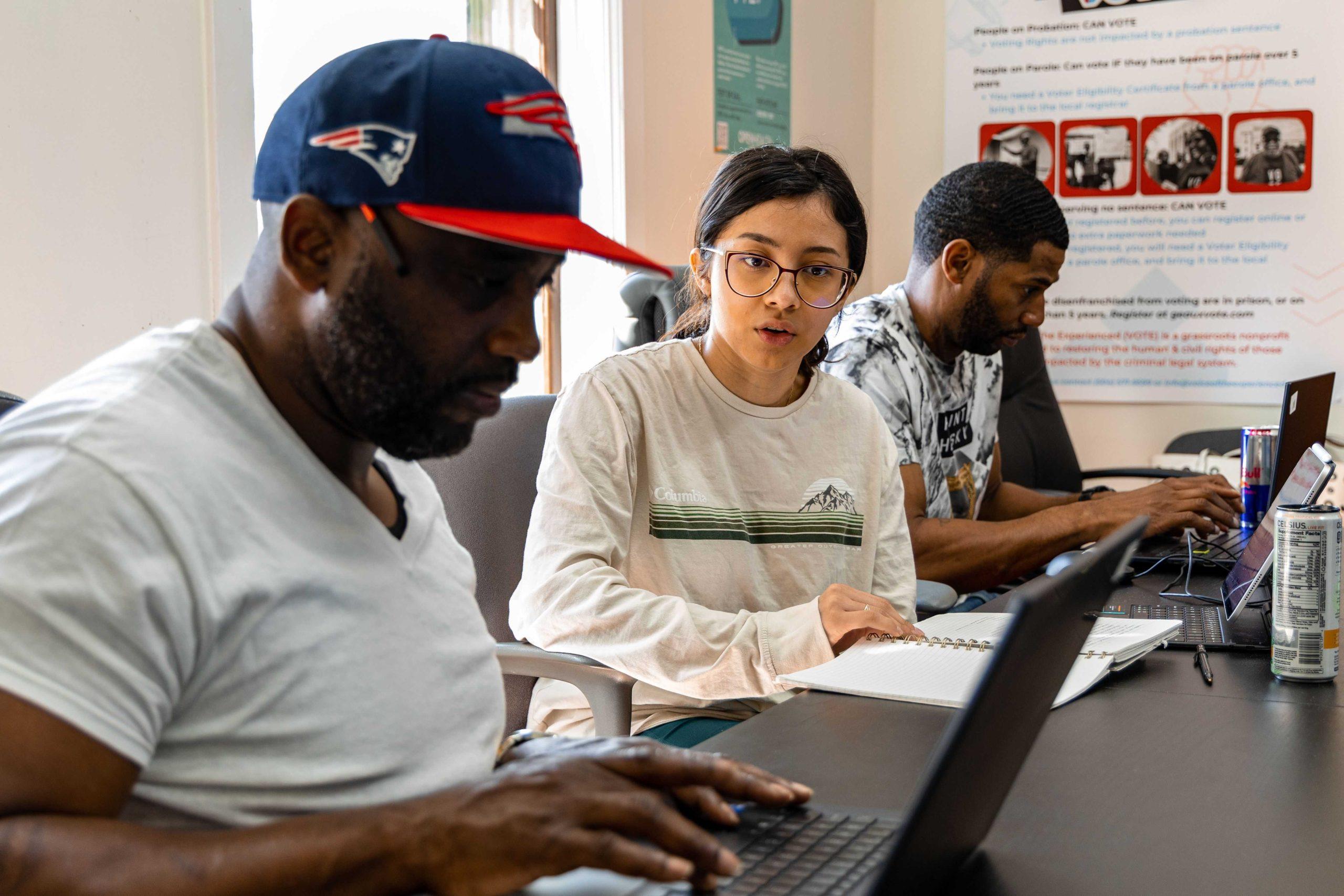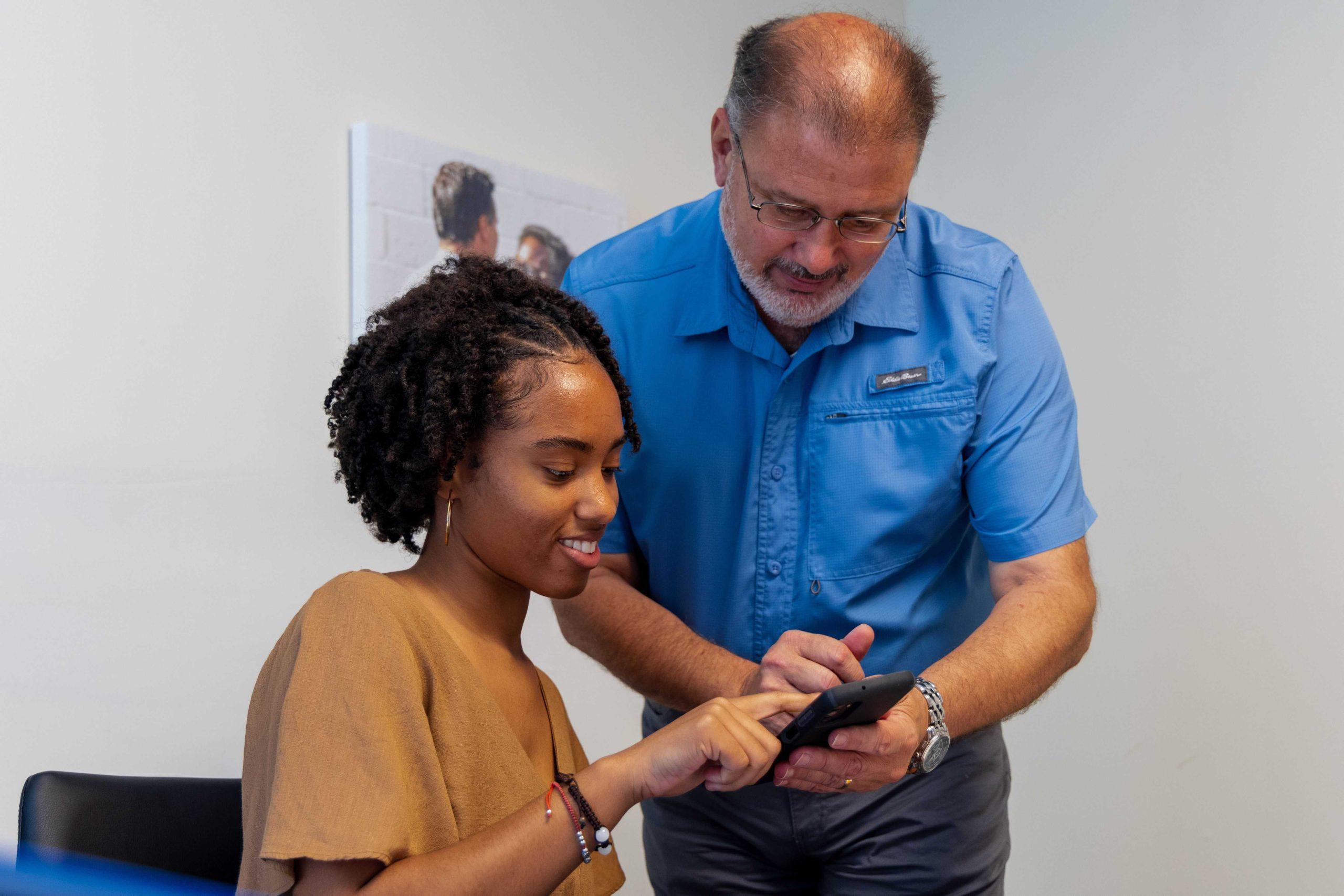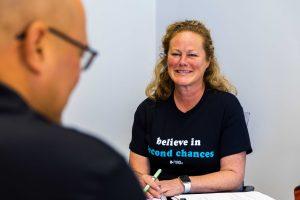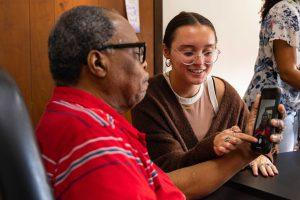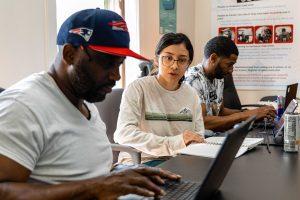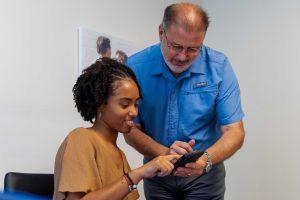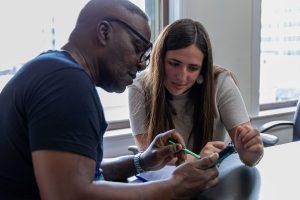Andrew Hundley was incarcerated for 19 years.
At 15 years old, Hundley, a Eunice native, was sentenced to life without parole. When he was released in 2016 because of a landmark Supreme Court ruling on juvenile offenders sentenced to life without parole, he co-founded the Louisiana Parole Project, a non-profit organization that provides reentry support to people who have served long prison sentences.
Hundley said his experiences while incarcerated encouraged him to create the organization, which helps set formerly incarcerated people up with jobs, insurance and other tools they need to reintegrate back into society.
While incarcerated, Hundley took a few classes for college credit. After his release, he finished his college education at LSU, where he earned a bachelor’s degree in sociology.
Hundley said he had the rare chance to start over and live his life after his release. Most people don’t have the support to do that, he said.
“When I came home, I had a lot of resources and the ability to build a new life for myself,” Hundley said. “So I was very cognizant, immediately after my release, that I would be fine because of opportunities that were in front of me, and I knew that other people who were coming home didn’t have the same opportunities.”
Now, his organization works directly with LSU students to raise awareness and advocate for people who have served long prison sentences.
The Louisiana Parole Project employs interns and collaborates with students from LSU’s School of Social Work, law school and Ogden Honors College. Through their work with the Louisiana Parole Project, Hundley said he hopes students gain a new outlook on the justice system.
“We have such an incredible relationship with LSU…And there have been so many students over the last several years who leave as a volunteer, as an intern, as a student, lawyer, social work intern, who are impacting our organization, impacting our clients’ lives,” Hundley said.
Hundley said the clients students work with have been incarcerated for decades. Often, they don’t know how to use a cell phone or a debit card. Hundley said the organization teaches clients life skills and provides them with the resources to succeed so they are less likely to reoffend.
“People don’t want to be in prison, especially as people age and mature. People don’t want to live lives of crime,” Hundley said.
Robert Lancaster, the assistant dean of experiential education at the LSU Paul M. Hebert Law Center, co-founded the Louisiana Parole Project with Hundley. He teaches the parole and reentry clinic, including a class where students work with Louisiana Parole Project clients.
Through the course, students work with lawyers to prepare clients for hearings while they’re still incarcerated.
Lancaster said he hopes law students not only learn the educational aspect of assisting real people in real cases, but also gain a better understanding about the legal system and the individuals impacted by it.
“In their professional career, the goal [is for students to] keep working to make our criminal legal system better, and create a criminal legal system that, of course, protects the public, but also provides the opportunity for individuals to have second chances when they demonstrate that they’re worthy of a second chance,” Lancaster said.
Law student Kayla Meyers first started working with the Louisiana Parole Project when she was a sophomore at LSU. Through LSU’s Tiger Prison Project, a student organization focused on criminal justice, she began participating in workshops and eventually became a sociology intern during her undergraduate career.
While working with the Louisiana Parole Project, Meyers has accompanied staff members to the Louisiana State Penitentiary, where they interview clients and conduct research for legislation.
Meyers said meeting the clients face to face gave her a new perspective on the legal system.
“I got to see how your direct, hands-on experience with these people can impact them, it can impact you, it can impact the community…How people truly can change and how people really, really do deserve a second chance,” Meyers said.
Meyers still volunteers with the organization and said she hopes to eventually participate in Lancaster’s law clinic.
Graduate student Renee Hass started working at the Louisiana Parole Project in August 2022 as a social work intern. Hass said she became involved with the organization because it directly aligns with her interest to help individuals who have been incarcerated.
As part of her work, Hass assesses clients and researches resources for courses to help newly-released clients adapt to societal changes that happened while they were incarcerated.
Hass said the most rewarding part of working with the organization is the direct impact she can have on clients. She said the work she’s done so far has prepared her for a career after graduation so she can continue working with people who were incarcerated.
“I will be very well prepared to facilitate programs, assessments, anything that would be needed for an individual who is coming into a reentry program…It’s very rewarding to see [clients] starting to make their own choices and be more confident about themselves,” Hass said.
Like Meyers, she said the Louisiana Parole Project offered insight into the criminal justice system that she didn’t previously have.
“[People who are incarcerated] are far more underrepresented…than any of the population…These are the types of social problems that people don’t think about unless they’ve been touched by it,” Hass said.
In the future, Hundley said he hopes to continue working with LSU students and expanding the Louisiana Parole Project’s impact.
“We’re giving future leaders an opportunity to better understand the unseen side of the criminal justice system,” Hundley said.


